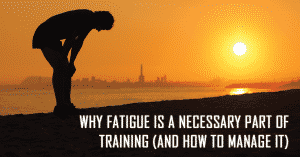 For many of us, we are now in the full swing of summer; the kids are off school, everywhere you go is extremely busy, and it is peak time for vacation (along with everyone else!). It can make it tough to fit in any kind of run, let alone a workout or long run for a specific goal race!
For many of us, we are now in the full swing of summer; the kids are off school, everywhere you go is extremely busy, and it is peak time for vacation (along with everyone else!). It can make it tough to fit in any kind of run, let alone a workout or long run for a specific goal race!
Heck, due to a hectic work schedule, many of you reading this article don’t need summer to have your training interrupted by travel. It’s a part of your everyday training challenge.
Perhaps one of the most logistically challenging aspects of summer training is trying to fit in runs and workouts around travel, regardless of whether it’s for pleasure or work. Unfamiliar routes, busy schedules, and weariness from the road can make it nearly impossible to stick to the optimal training plan.
So, how do you handle training while travelling?
Rather than providing you with yet another article on travel tips like finding a treadmill, mapping your routes, and planning ahead, and because there are plenty of resources from runners with far more travel experience than myself, this article will target the more holistic aspect of training while travelling.
What does that mean?
That is, how to take a long-term view of your workouts and learn to adapt your entire plan and outlook on training to handle the stress and unpredictability of travel.
One workout doesn’t make or break a training segment
Thanks to the OCD nature that probably pre-disposes us to be runners, missing a key workout can be extremely difficult to handle. Even the most experienced runners fret about lost fitness or missed potential gains when they miss a workout.
However, if you’re training consistently, there is no magic or secret workout that must be done in order to have success at any race distance.
A former coach of mine, Scott Simmons, was fond of the saying that a missed workout was a “small drop of water in your big bucket of fitness”. Meaning, if you think of every workout, easy day and long run you do as a drop of water that collects in a large bucket, you can see that once your bucket is filled up with water, the absence of a single drop isn’t noticeable in the slightest.
It has a minuscule impact on your overall fitness.
This analogy helped me understand that training isn’t about individual workouts. When you step back and look at your training from a holistic point of view, you can see that missing one workout has little impact on your fitness.
So, what does this have to do with training and travel?
Many runners I work with have trouble bouncing back after a missed workout. It ruins the rest of their week as they never get back on track. Some runners try to cram workouts in to makeup for their missed run, which is always the wrong answer. And, some runners lose complete confidence in their fitness and carry that feeling with them into race day.
Don’t let missing one workout due to a long flight or a busy work meeting ruin your entire week of training or cause you to lose confidence in your fitness.
Remember, it’s a small drop of water in your big bucket of fitness.
Doing something is better than doing nothing
We all want everything to go perfectly in training. Unfortunately, when traveling sometimes you have to adapt and do the best with what you’re given. Perhaps you don’t have time to get in that tempo run you planned or find yourself in a location less than ideal for 400 meter repeats.
Rather than not doing anything, get creative.
Turn your track session into a fartlek and sprint telephone pole to telephone poll.
Can’t get outside?
Focus instead on injury prevention and do some hip strengthening or core work. Heck, you don’t even need to get that creative. An easy run is still better than not running if you have the time. However, even if you’re short on time, simply taking three minutes to do the five most beneficial hip strengthening exercises could go a long way towards keeping you healthy long-tem.
What’s the bottom line?
Regardless of what you’re able to fit in, you can still find some small way to make yourself a better runner each and every day.
Overtraining is also caused by lack of sleep and recovery
With that said, remember that overtraining and fatigue are caused by more than just running workouts.
Lack of sleep, travel anxiety, and trying to cram in workouts can all lead to a greater stress on your body than you realize.
Training does not occur in a vacuum and the stress and lack of sleep from a busy travel schedule can be just as hard on the body as a week of difficult workouts.
Schedule yourself some needed rest and recovery time. Most experienced runners will admit that the cause of their poor performances was a result of trying to do too much or getting injured rather than not working hard enough.
Remember, no single workout makes or breaks a training segment. Sometimes, the best way for you to stay healthy and train to your best is to take some extra rest and eat yourself out of it.
[bctt tweet=”Don’t let missing one workout ruin your entire week of training (or your confidence). Traveling happens!”]




